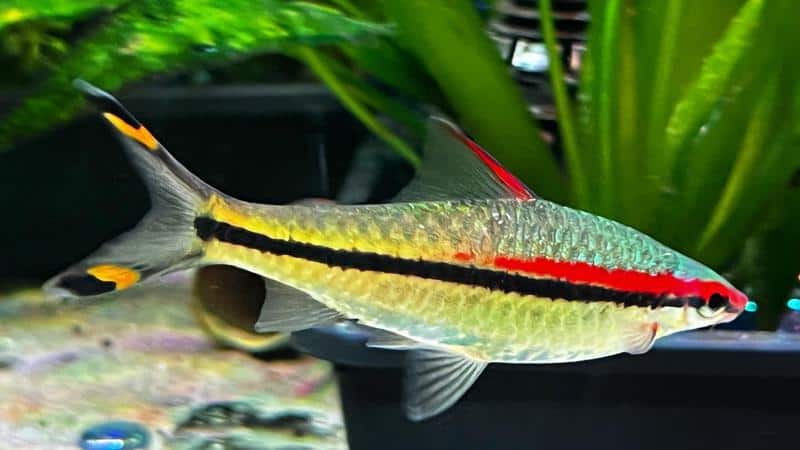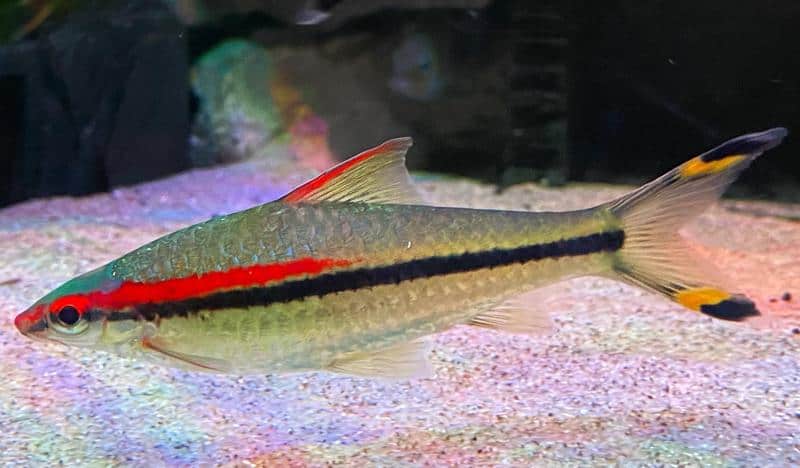Roseline Shark (Sahyadria denisonii) - 2"-3" - Live Fish
Roseline Shark (Sahyadria denisonii) - 2"-3" - Live Fish
The Roseline Shark, also known as the Red-Line Torpedo Barb or Red-Finned Shark, is a striking and popular species of freshwater fish, scientifically known as Sahyadria denisonii. Despite its common name, it is not a true shark but rather a type of barb, and its vibrant colors and active nature make it a favorite among aquarium enthusiasts. Native to the rivers of southern India, this species is often admired for its eye-catching appearance and relatively easy care.
The Roseline Shark, a vibrant and active freshwater barb from southern India, is a popular aquarium fish known for its striking red stripes and fins. Reaching 4-6 inches, it boasts a sleek, torpedo-shaped body, making it a dynamic swimmer. While called a "shark," it's a peaceful barb, though it can be territorial with similar-looking fish.
These omnivores thrive in 30+ gallon tanks with slightly acidic to neutral water (pH 6.5-7.5, 72-79°F). They require planted tanks with open swimming areas and fine substrate. They enjoy a varied diet of flakes, pellets, live/frozen foods, and vegetables.
Roseline Sharks are schooling fish, needing groups of six or more. They are compatible with peaceful tankmates like tetras, rasboras, and Corydoras, but avoid aggressive species. Breeding in captivity is rare, requiring specific conditions. They live 5-7 years with proper care, which includes maintaining excellent water quality and providing ample swimming space.
Product features
Product features
Materials and care
Materials and care
Merchandising tips
Merchandising tips
Share










